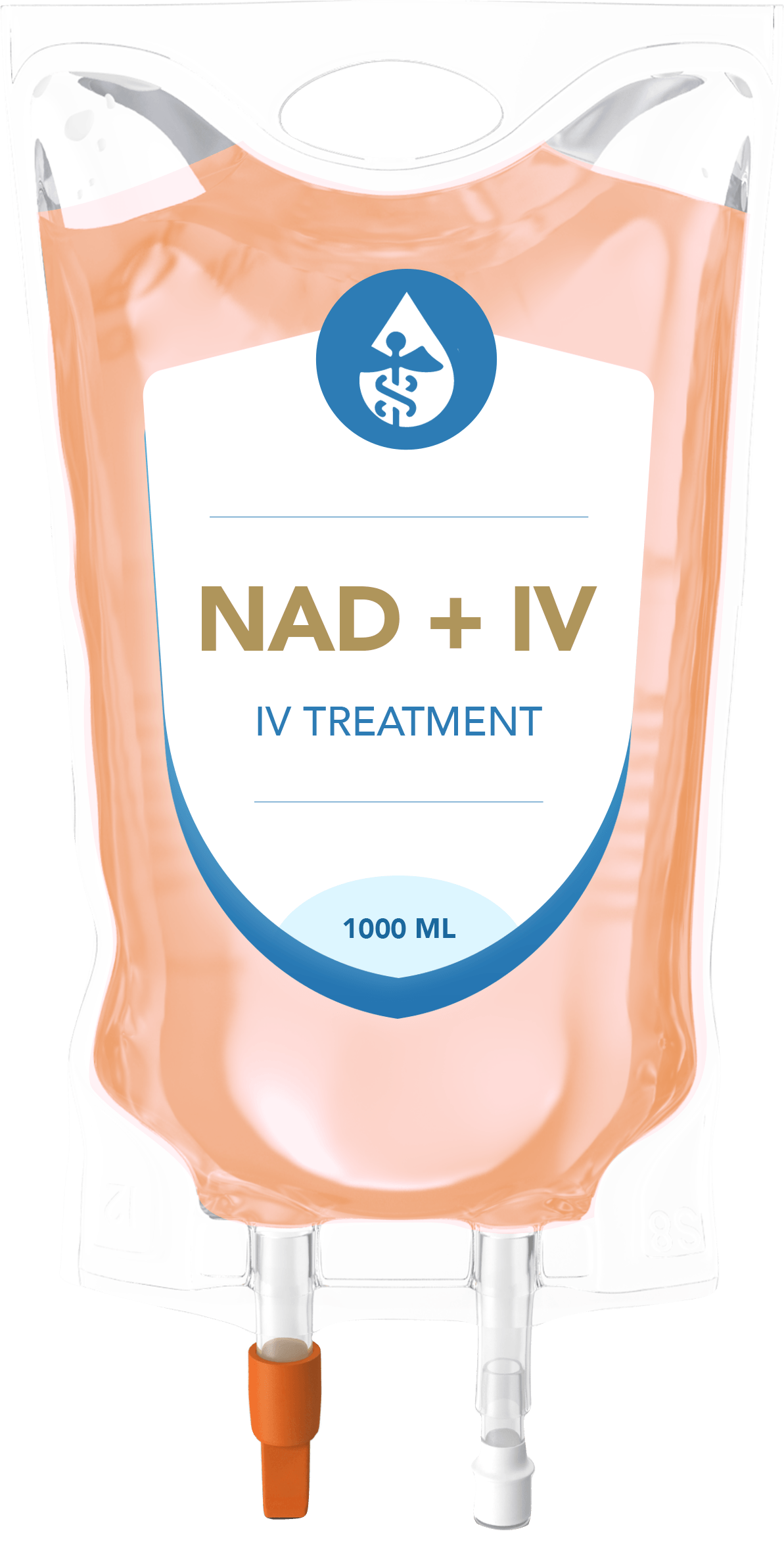Articles and Information
The Benefits of Magnesium IV Drips: Stress Relief and More

Understanding Magnesium IV Drips
What is a Magnesium IV Drip?
A magnesium IV drip is a medical treatment that involves administering magnesium directly into the bloodstream through an intravenous (IV) line. This method allows for rapid absorption of magnesium, bypassing the digestive system, which can improve the body's magnesium levels quickly and efficiently. Magnesium is an essential mineral that plays a crucial role in many physiological processes.
Typically, magnesium sulfate or magnesium chloride is used in these IV drips. They are often given in a clinical setting such as a hospital or wellness clinic, under the supervision of healthcare professionals. The use of magnesium IV drips has gained popularity not only for treating deficiencies but also for various conditions such as migraines, asthma, and even pre-eclampsia in pregnant women, showcasing its versatility in medical applications.
How Does a Magnesium IV Drip Work?
The process of administering a magnesium IV drip begins with a healthcare provider inserting a thin tube, called a catheter, into a vein, usually in the arm. Once the IV is in place, a sterile solution containing magnesium is carefully infused into the bloodstream.
This method is particularly beneficial because it allows for higher doses of magnesium compared to oral supplements, which can cause gastrointestinal issues like diarrhea when taken in large amounts. By infusing magnesium directly, patients can achieve the desired effects much faster, sometimes within minutes. This rapid delivery system is especially important in emergency situations where time is critical, such as in cases of severe magnesium deficiency or cardiac arrhythmias. Additionally, the administration of magnesium IV drips is often accompanied by monitoring of vital signs and electrolyte levels, ensuring patient safety and optimizing treatment outcomes.
The Role of Magnesium in the Body
Importance of Magnesium for Health
Magnesium is essential for numerous bodily functions, including muscle and nerve function, regulation of blood pressure, and the synthesis of protein, bone development, and energy production. It also helps maintain normal heart rhythms and supports a healthy immune system.
One of the most critical functions of magnesium is its role in converting vitamin D into its active form, which is vital for calcium absorption and bone health. Without sufficient magnesium, the body cannot efficiently utilize vitamin D, leading to potential deficiencies in calcium and contributing to various health issues.
Moreover, magnesium plays a pivotal role in the biochemical reactions that produce energy. It acts as a cofactor for over 300 enzymatic processes, which are crucial for converting food into energy and synthesizing DNA and RNA. This mineral is also involved in the regulation of neurotransmitters, which send messages throughout the nervous system, thereby influencing mood and cognitive functions. Given its extensive involvement in energy metabolism and brain health, ensuring adequate magnesium intake is vital for maintaining overall vitality and mental clarity.
Consequences of Magnesium Deficiency
Low magnesium levels can lead to a range of health problems. Some common symptoms of magnesium deficiency include muscle cramps, fatigue, irritability, and increased anxiety. Over time, severe magnesium deficiency may result in more serious conditions such as heart disease, osteoporosis, and metabolic syndrome.
In today’s fast-paced world, many individuals do not consume enough magnesium-rich foods, resulting in a significant portion of the population being deficient in this essential nutrient. This highlights the importance of understanding and addressing magnesium levels within the body, especially through methods like IV drips. Additionally, certain lifestyle factors, such as high-stress levels, excessive alcohol consumption, and a diet high in processed foods, can further deplete magnesium stores, exacerbating the risk of deficiency. As such, it becomes increasingly important to prioritize magnesium-rich foods like leafy greens, nuts, seeds, and whole grains in our diets, as well as considering supplementation when necessary to support optimal health.
Magnesium IV Drips for Stress Relief
The Connection Between Magnesium and Stress
Research has shown a direct correlation between magnesium levels and stress management. Magnesium helps regulate the body's stress response by moderating the release of stress hormones like cortisol. When magnesium levels are low, the body can react more intensely to stress, leading to heightened anxiety and tension.
Incorporating magnesium into the body through IV drips may help alleviate these symptoms, providing a much-needed calming effect. Many people report feeling more relaxed and centered after receiving a magnesium IV drip, making it an appealing option for those struggling with stress.
How Magnesium IV Drips Alleviate Stress
By delivering magnesium directly into the bloodstream, IV drips can quickly raise magnesium levels in the body, promoting relaxation and reducing symptoms of anxiety. This rapid influx of magnesium can help balance neurotransmitter function and improve mood, contributing to overall emotional well-being.
Furthermore, magnesium has been shown to enhance sleep quality, which is often negatively impacted by stress. Better sleep can lead to improved stress management, creating a positive cycle of overall better health.
Additional Benefits of Magnesium IV Drips
Magnesium IV Drips for Improved Sleep
Many individuals who struggle with insomnia or poor sleep quality have found relief through magnesium IV drips. Magnesium helps regulate melatonin, the hormone responsible for sleep-wake cycles, and promotes deeper, more restful sleep.
Receiving magnesium through an IV can provide immediate effects, with many patients reporting improved sleep within a short time after treatment. This is particularly beneficial for those who have difficulty taking oral magnesium supplements due to gastrointestinal side effects.
Magnesium IV Drips for Muscle Recovery
For athletes and active individuals, magnesium IV drips can aid in muscle recovery after intense workouts. Magnesium plays a crucial role in muscle contraction and relaxation, and replenishing magnesium levels quickly can mitigate soreness and prevent cramping.
This makes magnesium IV therapy a popular choice among athletes looking to enhance performance and recovery. The quick absorption of magnesium can help reduce inflammation and promote healing, allowing individuals to get back to their routine faster.
Potential Side Effects and Risks of Magnesium IV Drips
Common Side Effects of Magnesium IV Drips
While magnesium IV drips are generally safe for most people, they can cause some side effects. Commonly reported side effects include flushing, dizziness, and a feeling of lightheadedness during or after the infusion. Some patients may also experience a brief sensation of warmth at the injection site.
In rare cases, administering magnesium too quickly can lead to more serious side effects, such as irregular heartbeats or low blood pressure. Therefore, it is crucial that these treatments are administered by qualified healthcare professionals who monitor the patient throughout the process.
Who Should Avoid Magnesium IV Drips?
Magnesium IV drips may not be suitable for everyone. Individuals with kidney issues, heart disease, or those who are pregnant should avoid magnesium IV therapy unless specifically recommended by a healthcare provider. It is important to consult a doctor before undergoing any form of intravenous therapy.
Moreover, patients taking certain medications that interact with magnesium should also proceed with caution. Proper screening and assessment by healthcare professionals are essential to determine if magnesium IV drips are a safe and effective option for individual health needs.











